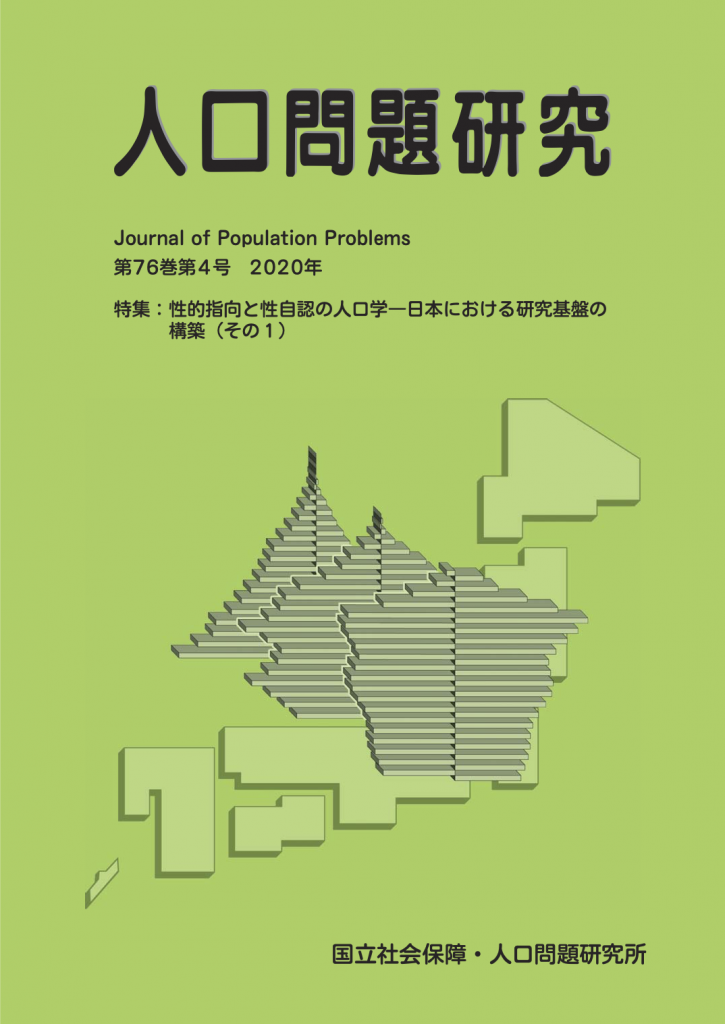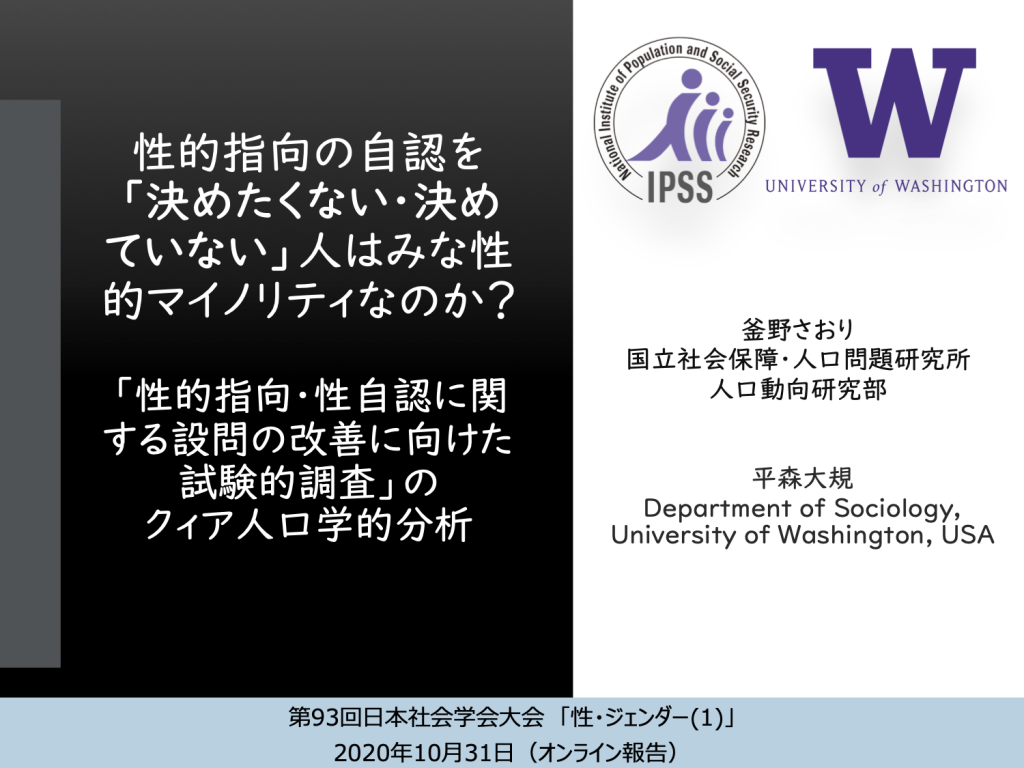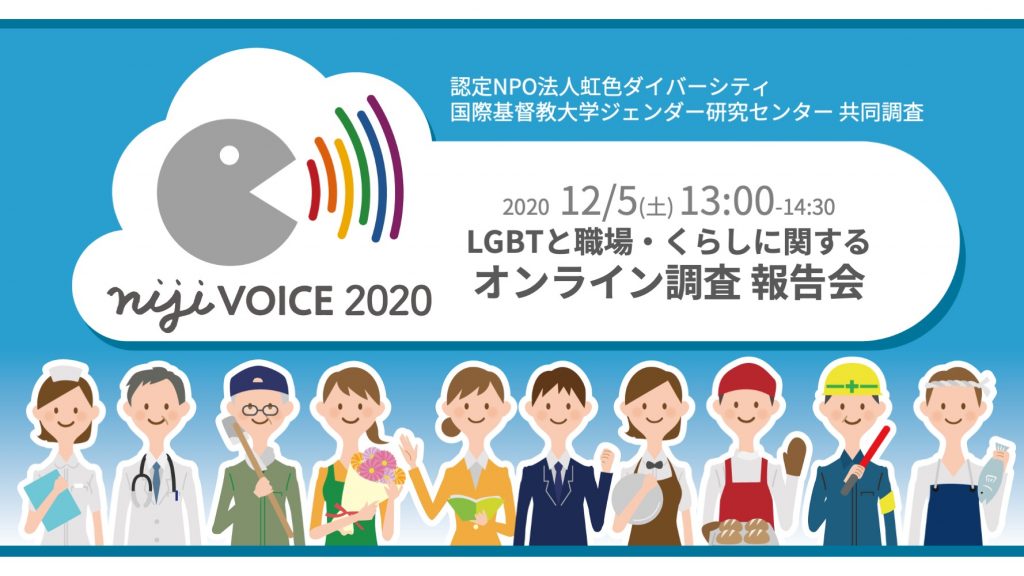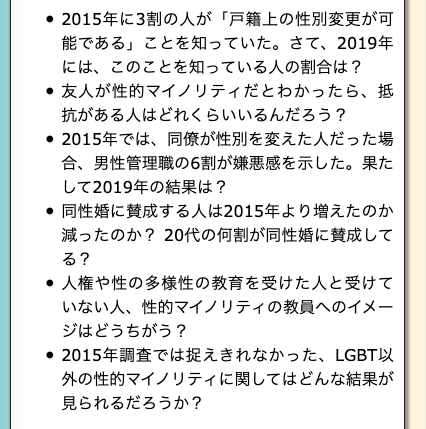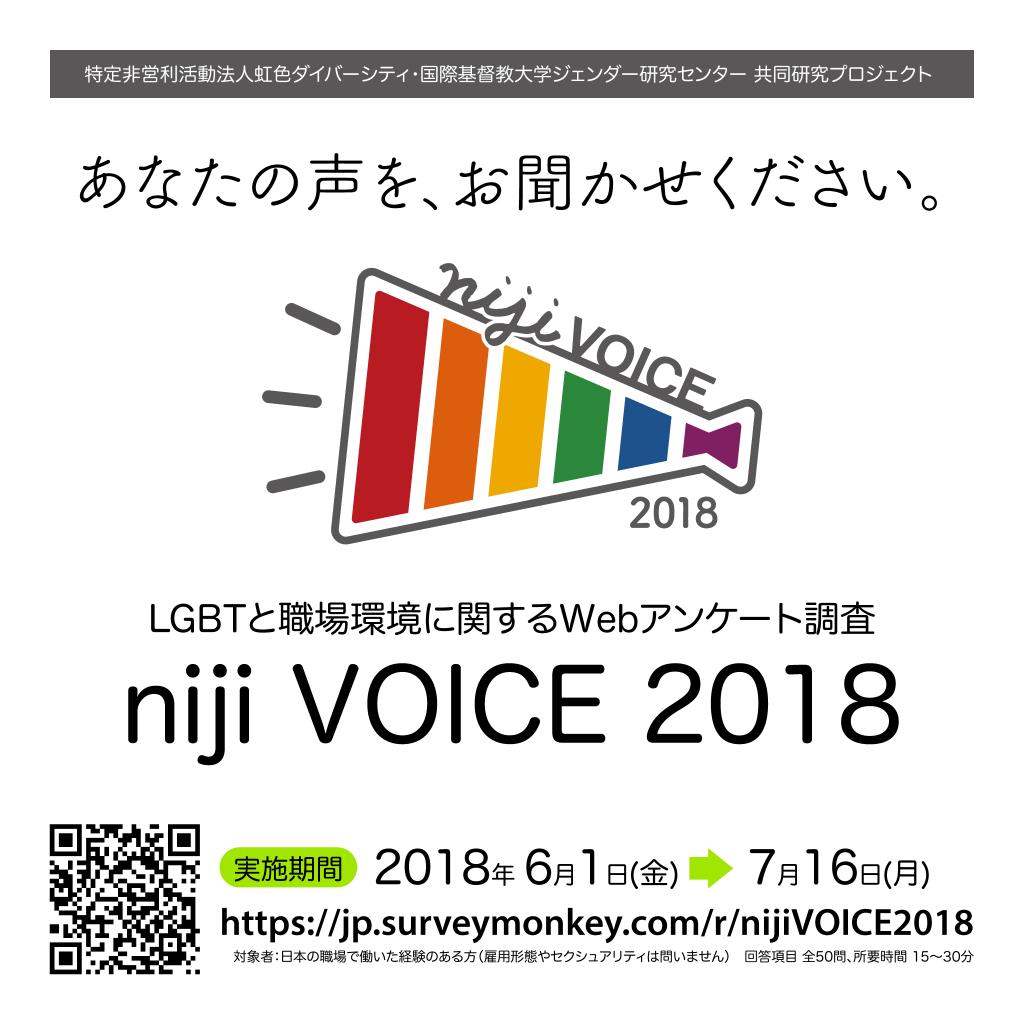My first article in English has just been released in the Journal of Population Problems, published by the National Institute of Population and Social Security Research! This article is part of the special issue “Demography of Sexual Orientation and Gender Identity: Building a Foundation for Research in Japan (Part 1).” See here for the full issue. *A full Japanese translation of this article is available in the Journal of Population Problems 77(1):45-67 (added on March 25, 2021).
- Hiramori, Daiki, and Saori Kamano. 2020. “Asking about Sexual Orientation and Gender Identity in Social Surveys in Japan: Findings from the Osaka City Residents’ Survey and Related Preparatory Studies.” Journal of Population Problems 76(4):443-66.
Abstract: Most studies on the measurement of sexual orientation and gender identity (SOGI) in representative surveys are conducted in Western countries. Whether the findings from these studies are applicable to countries with legal, religious, and cultural contexts regarding sexual and gender minorities distinct from Western societies is yet to be explored. To fill this gap, this paper summarizes the findings from focus groups and a pilot survey conducted to develop SOGI questions in the Japanese context. For sexual orientation identity, a six-category question that includes definition of each category, and for transgender status, a three-step method, are suggested for general use. The paper also reports on percentage distributions of SOGI by assigned sex at birth and by age group based on the Osaka City Residents’ Survey, one of the first population-based surveys in Japan with SOGI questions. Overall, our findings illustrate the significance of examining the measurement of SOGI beyond Western societies.
Keywords: recommended survey questions on SOGI, measurement, population-based survey, LGBT, focus groups
このたび、初めての英語論文が国立社会保障・人口問題研究所発行の『人口問題研究』に掲載されました!本論文は特集号「性的指向と性自認の人口学―日本における研究基盤の構築(その1)」の一部です。本号全体はこちらをご覧ください。
- Hiramori, Daiki, and Saori Kamano. 2020. “Asking about Sexual Orientation and Gender Identity in Social Surveys in Japan: Findings from the Osaka City Residents’ Survey and Related Preparatory Studies.” Journal of Population Problems 76(4):443-66.
なお、本論文の日本語タイトルは「性的指向と性自認のあり方を日本の量的調査でいかにとらえるか――大阪市民調査に向けた準備調査における項目の検討と本調査の結果」(平森大規・釜野さおり)です。論文の最終ページに日本語抄訳を載せていますので、あわせてご覧ください!
※『人口問題研究』77巻1号に、日本語全訳が掲載されています(2021年3月25日追記)。
